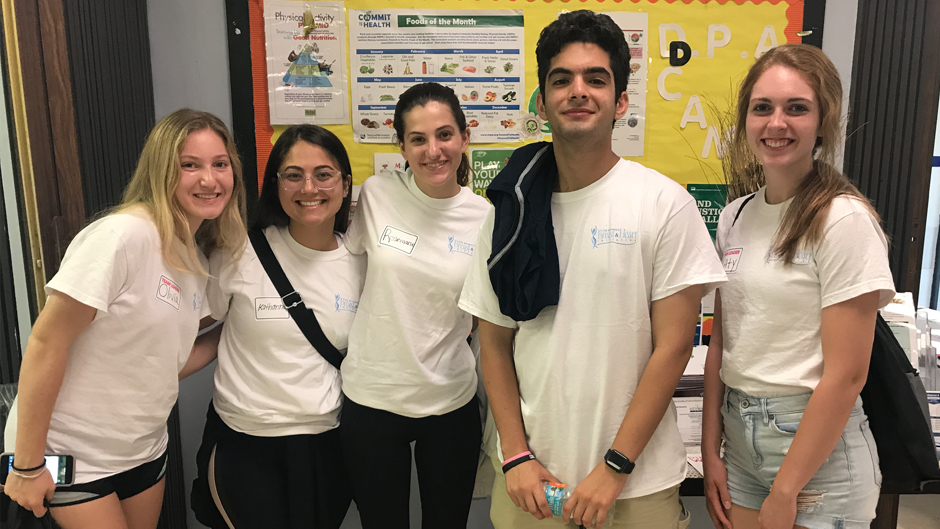On a quiet street in North Miami’s Sunkist Grove neighborhood, two women are conversing in Haitian Creole when Danielle Garcia and Madeline Clem approach wearing T-shirts that read “The Women’s Breast & Heart Initiative.” Clem works for The Women’s Breast & Heart Initiative (WBHI), and Garcia is a student volunteer from the School of Nursing and Health Studies. After explaining the program’s goals, Clem and Garcia ask the women a series of questions to determine their eligibility for free mammogram and heart health screenings. With her friend helping interpret the details into Creole, one of the women decides to make a screening appointment. She is over 65 and tells Clem and Garcia she can’t remember the last time she had a mammogram. It’s a win that makes Garcia, a future nurse, smile.
Moments like this—bringing potentially life-saving diagnostic tests to at-risk women—are precisely why WBHI exists. The nonprofit organization holds door-to-door outreach campaigns in underserved, lower-income communities around South Florida. Each month, for five months of the year, volunteers visit nearly 1,500 households in a particular community. At the end of the month, WBHI hosts a screening and wellness day in that community, providing mobile facilities for mammograms, as well as cholesterol, hypertension and glucose screenings. Participants also receive fresh fruit, vegetables, and healthy-eating guides.
Garcia and around 50 of her peers from the School of Nursing and Health Studies volunteered with WBHI in September as part of the Public Health Nursing course taught by SONHS faculty members Yui Matsuda and Régine Reaves, and the Growth and Development course taught by faculty Jill Sanko and Patricia Amado. The students distributed educational breast- and heart-health packages, including guidelines for early detection and information about referral and annual re-screening programs. The materials explain that breast cancer affects 1 in 8 women and heart disease, the leading cause of death among women in the U.S., affects 1 in 3.
“The essence of public health nursing is promoting health and finding those in need of services, and this organization does just that,” Reaves said. “[Our students] are always amazed by the great work of volunteers and the interaction they have with clients. As a result, many students return to volunteer more of their time.”
Julia Sway, who is on track to graduate from the accelerated B.S.N. program this December, said canvassing local neighborhoods with WBHI added “value and texture” to her education. “I really appreciated the opportunity to apply what we are learning in public health nursing and be proactive in the community,” she explained. “One big takeaway for me as a future hospital nurse is how important it is to talk about secondary preventative care when a patient is in front of you. We knocked on 30 doors and connected with three or four women. I saw how much effort it takes to get information into the community, so if someone is coming in to see us, we need to take that opportunity to discuss wellness screenings. That will be a priority for my health care game plan. It may not be realistic to address every issue with every patient, but reaching 5 percent here or 10 percent there is a great start.”
The SONHS-WBHI partnership is in its second year.

